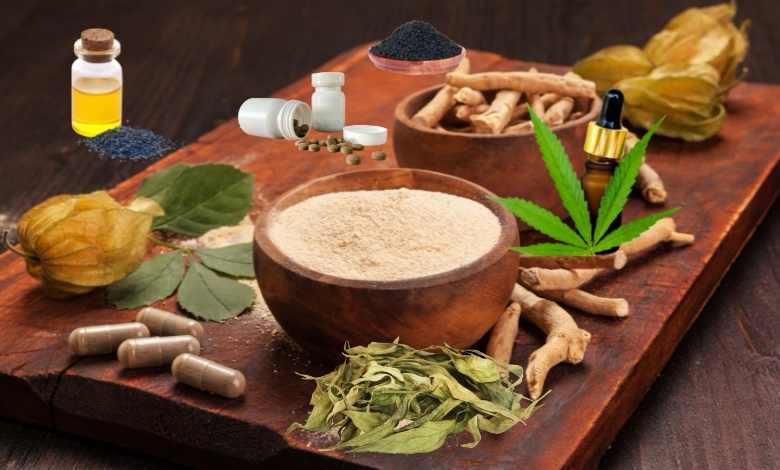Ask Ayurvedic doctor a question and get a consultation online on the problem of your concern in a free or paid mode. More than 2,000 experienced doctors work and wait for your questions on our site and help users to solve their health problems every day.
Dasamoolarishtam and Jeerakarishtam Benefits – Ayurvedic Tonic for Health

Introduction to Dasamoolarishtam and Jeerakarishtam
In the realm of Ayurveda, Dasamoolarishtam and Jeerakarishtam are two well-known herbal tonics used for a variety of health benefits. Both are made from potent Ayurvedic herbs that offer powerful therapeutic effects, particularly for improving digestion, boosting immunity, and promoting overall health. These formulations are often recommended for individuals looking to enhance vitality, maintain a balanced body, and support digestive functions naturally.
Don't wait or self medicate. Start chat with Doctor NOW
What is Dasamoolarishtam?
Dasamoolarishtam is an Ayurvedic formulation that consists of a blend of ten different medicinal herbs, known as the Dasamoola group. This herbal tonic is primarily used to treat respiratory issues, improve digestion, and provide relief from chronic conditions like cough, asthma, and fatigue. The formulation is rich in medicinal properties and serves as a rejuvenator for the body.
Key Benefits of Dasamoolarishtam
-
Supports Respiratory Health Dasamoolarishtam is particularly effective in treating respiratory conditions such as asthma, chronic cough, and bronchitis. It helps clear mucus, reduce inflammation, and improve breathing.
-
Improves Digestion The formulation enhances Agni (digestive fire) and helps in alleviating indigestion, bloating, and poor appetite. It stimulates the digestive system, promotes better absorption of nutrients, and reduces excess acidity in the stomach.
-
Boosts Immunity The combination of herbs in Dasamoolarishtam has immunomodulatory properties, which help enhance the body’s immune response and fight infections.
-
Anti-inflammatory Effects Dasamoolarishtam’s anti-inflammatory properties make it useful in treating conditions like joint pain, arthritis, and muscle stiffness. It helps in reducing swelling and promoting faster recovery from physical exertion.
-
Energizes the Body Regular consumption of Dasamoolarishtam can provide a natural energy boost and improve overall vitality. It is considered an excellent tonic for fatigue and weakness.
What is Jeerakarishtam?
Jeerakarishtam is another Ayurvedic formulation, primarily composed of Cumin seeds (Jeera) and other medicinal herbs. This tonic is well-known for its digestive and detoxifying properties. It helps to improve digestion, reduce gas and bloating, and soothe the stomach. Jeerakarishtam is often recommended for individuals suffering from digestive problems and those seeking to cleanse and rejuvenate their digestive system.
Key Benefits of Jeerakarishtam
-
Enhances Digestion Jeerakarishtam is known to stimulate the digestive fire (Agni) and promote the smooth digestion of food. It helps in treating indigestion, constipation, and bloating by improving gastric motility and reducing acidity.
-
Reduces Gas and Bloating This formulation is particularly effective for relieving flatulence, bloating, and discomfort caused by excess gas in the stomach and intestines. The carminative properties of cumin seeds (Jeera) soothe the digestive tract and help expel trapped gas.
-
Cleanses the Digestive System Jeerakarishtam aids in detoxifying the body by flushing out toxins from the digestive tract, promoting better absorption of nutrients and improving gut health.
-
Relieves Nausea and Vomiting The formulation can be useful in treating nausea and vomiting, especially during digestion-related discomfort. It provides relief from gastric upset and balances the stomach.
-
Improves Appetite Jeerakarishtam enhances appetite, making it beneficial for those who struggle with poor digestion or lack of appetite. It improves the body’s ability to metabolize food and enhances overall digestive efficiency.
Comparing the Benefits of Dasamoolarishtam and Jeerakarishtam
Both Dasamoolarishtam and Jeerakarishtam offer incredible benefits for digestive health, but each formulation has unique advantages:
- Dasamoolarishtam is more focused on providing respiratory support, energy, and immunity enhancement. It is useful for treating conditions like chronic cough, asthma, joint pain, and fatigue.
- Jeerakarishtam, on the other hand, is a powerful digestive tonic that relieves indigestion, gas, bloating, and improves appetite. It also helps cleanse the digestive system and provides relief from nausea.
While both tonics support digestion, Dasamoolarishtam offers broader benefits for respiratory health and immunity, whereas Jeerakarishtam is more targeted toward improving digestive function and alleviating discomfort caused by digestive issues.
How to Use Dasamoolarishtam and Jeerakarishtam
Dasamoolarishtam
- Dosage: Generally, 15-30 ml of Dasamoolarishtam is taken once or twice daily, preferably after meals, or as directed by an Ayurvedic practitioner.
- Usage: It can be diluted with water for ease of consumption. Regular use is recommended for long-term benefits in boosting immunity, improving digestion, and supporting respiratory health.
Jeerakarishtam
- Dosage: The typical dosage for Jeerakarishtam is 15-20 ml, taken once or twice a day, preferably after meals.
- Usage: It can be taken directly or mixed with water for better taste and ease of digestion. Consistent use can significantly improve digestive health and reduce discomfort related to bloating and indigestion.
Potential Side Effects & Precautions
Both Dasamoolarishtam and Jeerakarishtam are generally considered safe when used according to recommended guidelines. However, there are a few precautions:
-
Dasamoolarishtam: It should be used cautiously in individuals with high Pitta conditions, as it may aggravate acidity. Pregnant or breastfeeding women should consult a healthcare provider before use.
-
Jeerakarishtam: Though it is safe for most individuals, excessive consumption may cause mild gastrointestinal discomfort. People with sensitive stomachs or those who are prone to acidity should use it with care. It is also advisable to consult a doctor before use during pregnancy.
Frequently Asked Questions for Dasamoolarishtam and Jeerakarishtam
What is Dasamoolarishtam used for?
Dasamoolarishtam is primarily used to support respiratory health, improve digestion, boost immunity, and treat inflammation. It is beneficial for conditions like chronic cough, asthma, joint pain, and fatigue.
How does Jeerakarishtam improve digestion?
Jeerakarishtam improves digestion by stimulating Agni (digestive fire), promoting better nutrient absorption, and relieving discomfort from bloating, gas, and indigestion. It also cleanses the digestive system by eliminating toxins.
Can Dasamoolarishtam be used for weight loss?
Dasamoolarishtam can support weight loss indirectly by improving digestion, boosting energy, and reducing symptoms of bloating and sluggish digestion. However, it should be used in conjunction with a healthy diet and exercise plan for best results.
Is Jeerakarishtam effective for nausea and vomiting?
Yes, Jeerakarishtam is effective in relieving nausea and vomiting, particularly when related to digestive disturbances. It helps calm the stomach and promotes better digestion.
Can I use both Dasamoolarishtam and Jeerakarishtam together?
Yes, Dasamoolarishtam and Jeerakarishtam can be used together to complement each other. While Dasamoolarishtam focuses on improving immunity and respiratory health, Jeerakarishtam supports digestive health and alleviates bloating and indigestion.
How long should I take Dasamoolarishtam and Jeerakarishtam?
The duration of usage for both tonics depends on your individual health needs and the condition being treated. Generally, it is recommended to use them for a few weeks to a couple of months for noticeable benefits, or as advised by an Ayurvedic practitioner.
Are there any dietary restrictions while using Dasamoolarishtam and Jeerakarishtam?
While using these tonics, it is recommended to follow a balanced diet that includes easily digestible foods, especially when using Jeerakarishtam. It is best to avoid heavy, oily, or spicy foods that could aggravate Pitta or cause indigestion.
Conclusion & Expert Insights
Dasamoolarishtam and Jeerakarishtam are both powerful Ayurvedic tonics that offer comprehensive health benefits, particularly for digestion, immunity, and respiratory health. By incorporating these tonics into your daily routine, you can support your body’s natural healing processes and enhance overall vitality. As always, it is best to consult an Ayurvedic practitioner for personalized advice and to ensure that these remedies are suitable for your unique health needs.
References & Further Reading
- Sharma, P.V. (1995). Ayurvedic Healing: A Comprehensive Guide.
- Lad, V. (2002). Ayurveda: The Science of Self-Healing.
- National Institute of Ayurveda:
- Journal of Ayurveda and Integrative Medicine for research on herbal tonics like Dasamoolarishtam and Jeerakarishtam.


